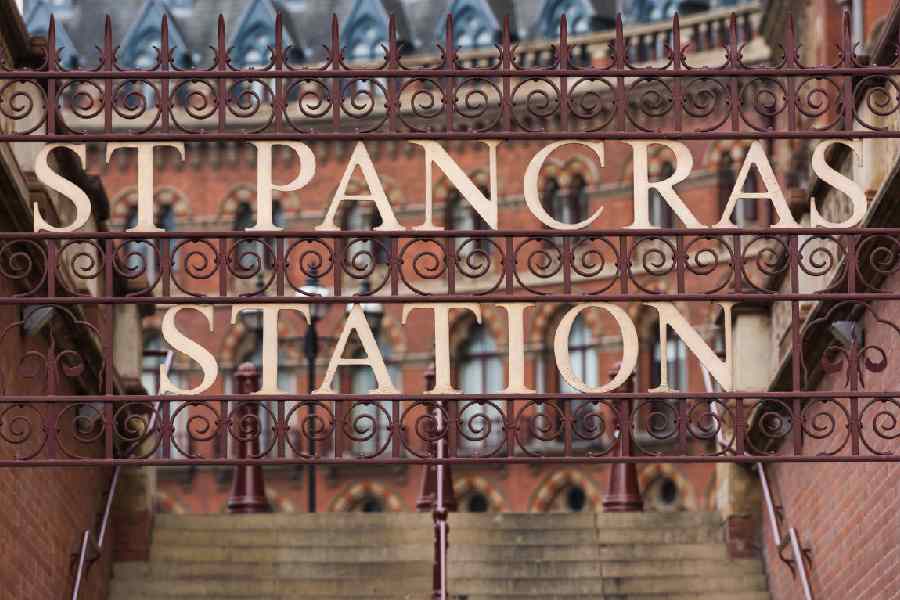Book: MY FRIENDS: A NOVEL
Author: Hisham Matar
Published by: Viking
Price: Rs 1299
Hisham Matar’s new novel opens on the evening of November 18, 2016. The main protagonist, Khaled, has just parted with his friend, Hosam, who, having got back from Benghazi in Libya, is emigrating to America. As Khaled decides to walk home, he starts reminiscing about his life in London, about political events of the previous three decades, and, above all, about his friendship with Hosam and with Mustafa, the three of them Libyan exiles in London. The entire novel takes place during the couple
of hours it takes Khaled to walk from St Pancras to Shepherd’s Bush. In ways which recall Matar’s celebrated first novel, In the Country of Men, it moves between past and present and reflects on the complexities of time: “He looked at me then as if we had already parted ways and the present was the past, I standing at the shore and he on board the ship sailing into the future.” The retrospective narrative sometimes returns to the same events, trying to understand them by seeing them in a different light. We
hear Matar’s discreet voice, which we recognise from his previous novels; it has the echoes of Khaled’s beloved R.L. Stevenson: “the ease of his sentences, which have the honest and vital momentum of nature.”
Khaled’s steps take him back to St James’s Square, where, on April 17, 1984, the Metropolitan Officer, Yvonne Fletcher, was killed by a shot fired from the Libyan Embassy, and where — since Matar mixes real political events with fiction — Khaled and Mustafa were wounded: “St James’s Square appeared to me now as the kernel at the center of my life, the place from which everything unraveled.” This defining moment forces him to leave Edinburgh, where he was studying, for fear of government spies to invent stories for his family back home because of tapped telephone lines. Like Matar’s memoir, The Return, which chronicled his return to Libya after the 2011 revolution, this novel grapples with the events and the consequences of the 2011 revolution. While Khaled’s friends have returned home to take an active part in the fighting, he stays back in London, realising that he needs to preserve the delicate balance of his life there. Leaving would force him to reconstruct a new life as he faces the predicament of exile: “it is a myth that you can return, and a myth also that being uprooted once makes you better at doing it again.” He understands at the end that his greatest achievement lies in not wanting a different life.
At one level, My Friends is a political work, which reflects on the political trajectory and the upheavals of Libya (in which Matar himself was involved from abroad). But at another level, it is also a quest for friendship, a meditation on the relationships that bring these three men together. The magic of the word, “friend”, “a wondrous thing,” lies at the centre of the novel. Khaled’s narrative explores the space of friendship, with its fluctuating fortunes and its silences. It also revisits
the moments of happiness with Rana, his Lebanese friend, who watched over him while he was recovering from the shooting, as well as those with his lover, Hannah, who could not wait for him to commit but whom he finds again at the end of the novel. It reflects on the distance that separates him from his family in Libya, on the pains of absence, and the impossibility of return.
The novel allows the readers to perceive the Arabic language, the Benghazi dialect, and their contacts with the English language. Khaled is an avid, systematic reader who discovers Tennyson’s In Memoriam to be “possibly the greatest poem ever written about friendship.” He holds on to precious books, his father’s annotated copy of The Epistle of Forgiveness by the Syrian poet, Al Ma’arri, Stevenson’s Dr Jekyll and Mr Hyde, Ahmad Faris al-Shidyaq’s Leg over Leg which echoes Laurence Sterne. He finds in the literature of exile, in the works of Joseph Conrad and of Jean Rhys, means to make sense of his own life. He understands the connections between writers, the progress and the correspondences that come to form the whole of literature. My Friends is perhaps ultimately a novel about the power of books: “we ask of writers what we ask of our closest friends: to help us mediate and interpret the world.”











